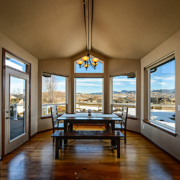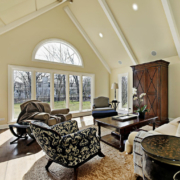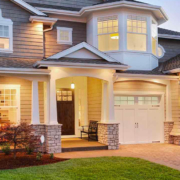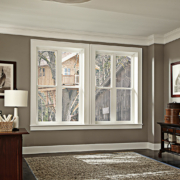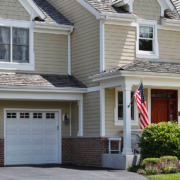Determining the Right Size of Basement Windows
Basement windows are essential to every home, providing natural light, ventilation, and emergency egress. However, the size of basement windows can be a critical factor in the overall functionality of the space. In this article, we will discuss the importance of the size of basement windows, building codes and regulations, factors to consider when determining the size of basement windows, common sizes for basement windows, and the installation process.
Is It a Code to Have a Window in a Basement?
In the United States, having a window in a basement is not just a preference but a legal requirement. In fact, it is considered a code violation if a basement does not have a window or if the window fails to meet specific requirements. This is to ensure that basement occupants have a means of escape in the event of a fire or other emergency.
The window must be large enough for a person to climb through and must be located close to the floor to make it easier to exit. The window should also be operable and can be opened and closed to allow for ventilation and natural light.
Apart from the safety concerns, having a window in a basement can also add value to a property. A basement with a window is considered more desirable because it makes the space more inviting and usable. It can be used as a recreational area, a guest room, or even a living space.
Natural light and fresh air can also help prevent mold and mildew growth, which are common in basements that lack proper ventilation. Therefore, it is essential to comply with the code requirements and ensure your basement has a window meeting the minimum standards.
Building Codes and Regulations for Basement Windows
Building codes and regulations are set in place to ensure that buildings are safe, accessible, and functional. Regarding basement windows, the codes specify that the windows must be of a certain size to allow for emergency egress, natural light, and ventilation.
The International Residential Code (IRC) and International Building Code (IBC) are the most commonly used building codes in the United States. They provide guidelines for the minimum size, maximum height from the floor, and minimum width and height of the opening for basement windows. Following the building codes and regulations when installing or replacing basement windows is essential to ensure that the occupants are safe and the building is up to code.
Non-compliance with building codes and regulations can result in fines and legal penalties. In addition, improper installation or replacement of basement windows can lead to safety hazards, such as water leakage, drafts, and energy loss. Hiring a professional contractor familiar with building codes and regulations can ensure that the installation is done correctly and meets the guidelines outlined in the codes.
The Importance of Properly Sized Basement Windows
Properly sized basement windows are crucial in creating a functional and comfortable living space. They provide natural light, ventilation, and emergency egress, essential for maintaining a healthy and safe living environment. Additionally, properly sized basement windows can enhance the space’s aesthetic appeal and increase the home’s value.
Conversely, improperly sized basement windows can lead to negative consequences, such as poor ventilation, insufficient natural light, and increased energy costs. It is essential to consider the factors involved in determining the size of basement windows to ensure they provide the necessary benefits and avoid potential drawbacks.
Factors to Consider When Determining the Size of Basement Windows
When determining the size of basement windows, several factors must be considered to ensure that the space is functional, safe, and comfortable. Some of these factors include:
Intended Use of the Space
The intended use of the basement space will play a significant role in determining the size of the windows. If the space will be used as a bedroom or living area, larger windows will be necessary to provide enough natural light and ventilation. Smaller windows may be sufficient if the space will be used for storage or a workshop.
Size of the Basement
The size of the basement will also play a role in determining the size of the windows. Larger basements may require larger windows to provide enough natural light and ventilation, while smaller basements may get by with smaller windows.
Natural Light
Natural light is essential to any living space, including basements. The size and placement of the windows will determine how much natural light enters the space. Larger windows will allow for more natural light, but they may also increase the risk of heat loss during the winter.
Ventilation
Proper ventilation is crucial for maintaining a healthy and comfortable living space. The size and placement of the windows will determine how much ventilation enters the space. Larger windows will allow for more ventilation but may also increase the risk of drafts during the winter.
Energy Efficiency
Energy efficiency is an essential consideration when determining the size of basement windows. Larger windows can increase the risk of heat loss during the winter, leading to higher energy costs. Choosing energy-efficient windows can help mitigate this risk.
Aesthetics
The size and placement of the windows can also significantly impact the overall aesthetic appeal of the space. Choosing windows that complement the home’s style and the basement’s design can enhance the space’s overall look and feel.
Common Sizes for Basement Windows
When choosing the size of basement windows, there are several common sizes to consider. These sizes are based on standard measurements and are often readily available from window manufacturers. Some of the most common sizes for basement windows include:
- 24 inches by 20 inches
- 32 inches by 14 inches
- 32 inches by 20 inches
It is essential to remember that these sizes are not one-size-fits-all, and choosing the appropriate size will depend on several factors, including the intended use of the space, the size of the basement, and the homeowner’s preferences. Custom sizes can also be ordered from window manufacturers to meet specific requirements.
When choosing the size of basement windows, the intended use of the space should be a primary consideration. Larger windows may be necessary for spaces used as bedrooms or living areas to provide enough natural light and ventilation, while smaller windows may be sufficient for storage areas or workshops.
Additionally, the amount of natural light desired and the space’s ventilation needs should be considered. Larger windows will allow for more natural light and ventilation, but they may also increase the risk of heat loss during the winter. Homeowners should consider their climate and energy costs when making this decision.
How Many Windows Does a Basement Need?
The number of windows needed in a basement depends on the purpose of the basement. If the basement is going to be used as a living space, then it is important to have at least one window for proper ventilation and natural light.
Building codes also require a means of egress, which usually means a window big enough for a person to escape through in case of an emergency. In most cases, a basement converted into a bedroom or a family room would require at least two windows, with one serving as the means of egress.
If the basement is not intended for living space, then the number of windows needed may be less. For example, if the basement is being used for storage space, then one window may be sufficient for ventilation. However, it is still important to consider the safety aspect of having a means of egress. In case of a fire or other emergency, having a window that can be easily opened and exited through can be a life-saving feature. Ultimately, the number of windows needed in a basement will depend on your area’s intended use and the building codes.
Use of Window Wells
Window wells are necessary for basement windows, providing a clear exit pathway during emergencies and preventing water from entering the space. The size of the window well should be at least nine square feet and should extend at least 36 inches from the window. The well must also support a weight of at least 200 pounds.
The materials used for the window well should be durable and able to withstand the elements such as metal, concrete, or stone. It is also essential to ensure that the window well is properly drained to prevent water from accumulating and causing damage to the foundation.
Different Types of Basement Windows
When choosing the size of basement windows, homeowners also have the option to select different types of windows. The most common types of basement windows include:
Sliding Windows
Sliding windows are a popular option for basement windows, as they are easy to operate and provide excellent ventilation. They consist of two sashes that slide horizontally along the track, allowing for a large opening for ventilation.
Double-Hung Windows
Double-hung windows are another popular option for basement windows. They have two sashes that slide vertically, allowing for easy operation and excellent ventilation. Double-hung windows are also energy efficient, as they can be closed tightly to prevent drafts.
Casement Windows
Casement windows are hinged on one side and swing outward to open. They provide excellent ventilation and natural light and are also energy efficient, as they can be closed tightly to prevent drafts.
Hopper Windows
Hopper windows are hinged at the bottom and open inward, allowing for excellent ventilation. They are a popular option for basement windows, providing maximum natural light and ventilation.
Awning Windows
Awning windows are hinged at the top and open outward, providing excellent ventilation. They are also energy efficient, as they can be closed tightly to prevent drafts.
Hopper Windows for the Basement
Hopper windows are hinged at the bottom and open inward. They are typically installed at the top of a basement wall and provide a way for natural light and fresh air to enter the space. Hopper windows are a great option for basements as they are easy to operate, secure, and energy-efficient.
There are several benefits to installing hopper windows in your basement. First and foremost, they provide natural light, making any space feel brighter and more inviting. This is especially important in basements, which often feel dark and dreary. With hopper windows, you can enjoy the benefits of natural light without sacrificing privacy or security.
In addition to providing natural light, hopper windows allow fresh air to enter the space. This is important for maintaining good air quality and preventing moisture buildup. Hopper windows are also energy-efficient, as they can help regulate the temperature in the basement and reduce the need for artificial lighting and ventilation.
Installation of Basement Windows
Installing basement windows is a complex process requiring experience and expertise. It involves cutting an opening in the foundation, installing a window well, and securing the window in place. Improper installation can lead to water leakage, drafts, and energy loss.
Hiring a professional contractor to install or replace basement windows is essential. They have the necessary skills and tools to ensure the installation meets building codes and regulations correctly.
Maintaining Basement Windows
Proper maintenance of basement windows is essential to ensure their longevity and functionality. Homeowners should inspect the windows regularly for any signs of damage, such as cracks or leaks. They should also regularly clean the windows and replace worn-out weatherstripping to prevent drafts and energy loss.
In addition, homeowners should ensure that the window wells are clear of debris and properly drained to prevent water from accumulating. They should also inspect the window wells for any signs of damage, such as cracks or rust, and repair them as necessary.
Conclusion
Properly sized basement windows create a comfortable, safe, and functional space. Building codes and regulations provide guidelines for the size and installation of basement windows. It is essential to follow them to ensure compliance and safety.
They offer numerous benefits, including increased natural light, ventilation, and emergency egress. They also enhance the space’s aesthetic appeal and increase the home’s value. Hiring a professional contractor is essential to ensure the installation is done correctly and meets the building codes and regulations.
As a leading provider of triple panes in America, Window Depot USA of Louisville, KY, delivers energy-efficient triple pane replacement windows at exceptional prices. We are committed to providing homeowners with the very best combination of quality, performance, and affordability for their replacement windows and entry door projects. Get properly sized basement hopper windows and enjoy a comfortable and energy-efficient living space! Get in touch with us to get a quote.



